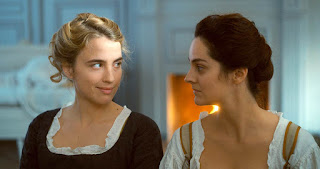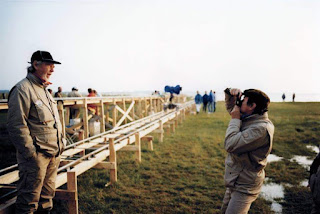MACBETH IN CINEMA
Shakespeare’s famous tragedy has been used as an influence for many films and shows unofficially 7 officially. Each adaption either tries to respect Shakespeare’s worldview or change the perspective completely. Bending a culture into another culture then make something new, This is been explored since cinema made its way to attract the audience. However, the major theme always rounds up around “greed” “guilt” “tragedy”.
Last month another adaption of Macbeth “Joji” was released on prime, that’s when I decided to watch other adaptions too and write or rank them altogether. Short notice currently I am watching the 1979 theatre version since it has worldwide acclaim but I will not be going to add that to the list. I have not finished it yet, two, theatre and cinema are making wise extremely different so it will not be fair to compare.
6) 𝑴𝒂𝒄𝒃𝒆𝒕𝒉 (2015) - 𝑱𝒖𝒔𝒕𝒊𝒏 𝑲𝒖𝒓𝒛𝒆𝒍
It will be a stretch if I say I particularly hate this film, Because I don’t hate this film, it is just I have some huge disagreement with creative choices. First of all, it is releasing almost 67 years after Welles adaption and 44 years after Polanski version yet it did not have anything new to serve. The only takeaway from the film was the huge budget, huge setting, color palate, visuals, and some slow-motion monologue. But all of these are already explored 44 years ago. And I know maybe this will not affect if someone watching it individually but if you watch adaptions by release time. it will stand as one of basic or easily forgettable adaption.
5) 𝑴𝒂𝒄𝒃𝒆𝒕𝒉 (1948) - 𝑶𝒓𝒔𝒐𝒏 𝑾𝒆𝒍𝒍𝒆𝒔
Orson Welles’s adaption was one of the first adaptions which brought popularity among its cinematic audiences. Welles’s adaption works well if someone reads the summary of Macbeth. It took almost all the dialogs from the original play but most of them are simplified so the audience can eat the similes and metaphors used. Although there is a huge debate about the fact how production interferes with creative dictions, how it reduces budget and forces the film to look cheap. Yet in those rush decisions, Welles did whatever he could be brought. He added some long shots to make those characters look dramatic while the sound and light design of thunder one of the few achievements for early adaption in cinema.
4) 𝑴𝒂𝒄𝒃𝒆𝒕𝒉 (1971) - 𝑹𝒐𝒎𝒂𝒏 𝑷𝒐𝒍𝒂𝒏𝒔𝒌𝒊
When I say I am still having a hard time separating the art from the artist, it is to a level where I disgust myself for liking something. But then again I understand that a flawed human is not a flaw for his/her every art.
With all this said, 1971’s adaption by Polanski is by far the most novelistic approach for Macbeth. It almost took everything from the play and copy-pasted on film while Polanski adds his vision to craft it as a newly made adaption. His wife’s death could be one of the reasons for the unapologetically raw experiment in the film. One may complain about the overuse of nudity and violence inside the film, but I felt it was well balanced with the theme. Polanski’s control behind direction was really admirable. His set and location decision to costume design everything reeks the smell of medieval literal drama. It made me think he did research about it properly before even production took place.
Despite all praises, the reason this adaption was not in my top 3 positions is because of the dialogue-heavy approach. This may or may not be the perfect approach for the story but to me half of the time I can’t remember what one said to another person. Also, there are lots of scenes that could be easily chopped off by 20-30 minutes. For example, there were multiple long shots used for Macbeth's monologues but then again there are another 2-3 minutes long shot just to show his facial expressions. I felt both of those things could have merge easily.
3) 𝑱𝒐𝒋𝒊 (2021) - 𝑫𝒊𝒍𝒆𝒆𝒔𝒉 𝑷𝒐𝒕𝒉𝒂𝒏
Now, this is a surprise entry. Despite the social media hype and praise, I really thought I will hate this adaption since they changed everything that makes Macbeth. But surprisingly it is still Macbeth yet original on its own. You get what I mean?
Here Joji ( Macbeth ) is not a power-hungry protagonist, he is more of a socially disturbed individual. The idea of guilt and lady Macbeth almost non-existent. And the biggest change is for a dialogue-heavy play like “ Macbeth “, Joji spends 1/3 of the film without any interaction or dialogue between characters. The film takes a good amount of time to show us what characters are going through and how their world could have resembled Macbeth's world. The slow burn treatment for a crime thriller works great in a pandemic setting. At first, it may look gimmicky but Dileesh Pothen's intention was extremely pure. Hence the ending makes more sense than it should have. Overall It’s a completely 360° different approach from others yet respectful to others. The praises are well deserving.
2) 𝑻𝒉𝒓𝒐𝒏𝒆 𝒐𝒇 𝑩𝒍𝒐𝒐𝒅 (1957) - 𝑨𝒌𝒊𝒓𝒂 𝑲𝒖𝒓𝒐𝒔𝒂𝒘𝒂
Akira Kurosawa is one of the first people who did the cultural shift in the adaption. Kurosawa’s Macbeth aka Throne of Blood transferred into a Japanese setting like any other Shakespeare adaption. The major plot points are the same and it is still honest to original but the characters have their own version of difference. For example, Throne of Blood does not start with witches singing, it starts with the king receiving the news of Washizu and Miki's (Macbeth and Banquo) fearless win in war. Which gives the audience idea of how the king respects them both.
Also, the fall of Macbeth has a different literal approach. While the original play MacDuff had a vengeance arc, Throne of Blood ended with how Wahizu received betrayal because of his own betrayal halfway through the story. The visual of the throne of blood is another reason why Kurosawa will forever relevant. His idea of change western style with the Noh style of drama deserves every bit of respect and shout-out. he wished to incorporate Noh-style body movements and set design. Noh also makes use of masks, and the evil spirit is seen, in different parts of the film, wearing faces reminiscent of these masks. Not quite like Joji but TOB also reduce the amount of dialogue inside the film and expresses that information through visuals. Kurosawa’s TOB is a Contemporary tale on its own. It has an original literature existence on its own.
1) 𝑴𝒂𝒒𝒃𝒐𝒐𝒍 (2003) - 𝑽𝒊𝒔𝒉𝒂𝒍 𝑩𝒉𝒂𝒓𝒅𝒘𝒂𝒋
The only person who could coexist with Kurosawa in the same line is none other than Indian director Vishal Bharadwaj. Maqbool is still considered one of the greatest achievements in Indian cinema. Bharadwaj took the epic tragedy of Shakespeare and placed it in a gangster storyline. It is not the first time something like this happening, But Bharadwaj did everything right where others could not pass. Late legendary actor Irfan khan played the lead role of Maqbool (Macbeth), What makes his version special is he had every character trait that Maqbool had but while others played that melodramatically, He played it more realistically.
Also, each of the characters had enough time to justice with their role. Specially Nimmi (lady Macbeth) had more screen time to convince his guilt and how she has slowly torn apart. Maqbool did everything perfectly. For me what stood out most was “the tone of tragedy”, Maqbool's world and characters were extremely vulnerable and they were well known about their surroundings. If it was not for adaption, I could not predict what was going to happen next.
It was hard for me to choose between Kurosawa and Bharadwaj, but I enjoyed Maqbool more so it is at my top. Short notice, The concept of lady Macbeth always felt half-baked to me, even when I read about it the first time. She was started as manipulative then she was absent for the time then suddenly she returned with a sad and guilty persona. It really felt extremely unrealistic. But then again just because my idea of emotions is different does not mean everyone should have the same view.
Although I am going to agree that many adaptions fixed those issues. I really respect when directors understand the difference between audio-visual mediums and change accordingly.









Comments
Post a Comment